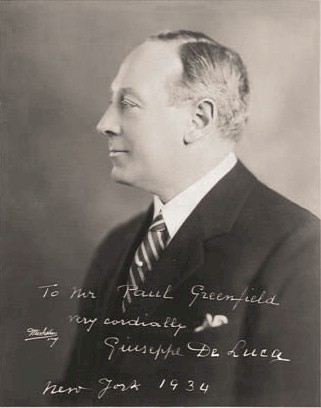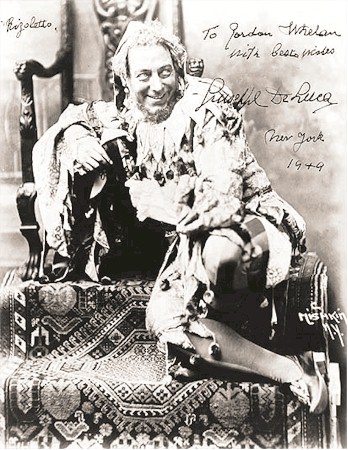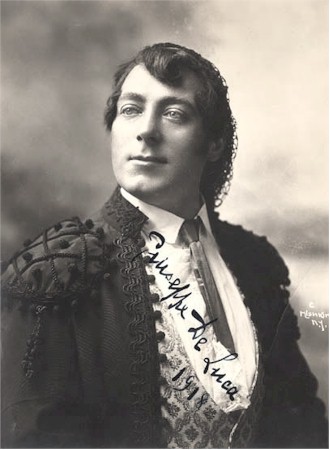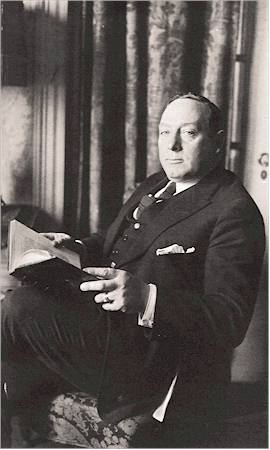Italian baritone, 1876 - 1950
Biographical notes: He was born in Rome and he early evinced promise as a singer, entering a singing school at the age of eight appearing in its choir as a boy soprano of astonishing range. He entered the Santa Cecilia Accademia as early as 1892, when he was only fifteen. He studied five years with Venceslao Persichini (one of the most important coaches of the time). He was soon the prize pupil of the class (Tita Ruffo was another student at the same institute). In 1897, shortly before his twenty-first birthday, he made his début singing Valentin in Piacenza. The next important step was Milan. He appeared at the Teatro Lirico and La Scala for eight seasons. In 1907, 1910, 1911 he made guest appearances at Covent Garden and he also visited Poland and Russia. He was in formidable company where baritones were concerned: Scotti, Ruffo, Pacini and Sammarco were all on the roster of La Scala at his time. After 1915 he joined the ensemble of the Met and remained there as leading baritone until 1946 (more than thirty years). He regularly appeared in South America, Spain, England, Russia, Germany and Austria. He created roles in several operas: Massenet’s Grisélidis and Cilea’s Adriana Lecouvreur in 1902, in 1903 Giordano’s Siberia and Sharpless in Puccini’s Madame Butterfly. Among his most frequent partners were Caruso, Rosa Ponselle, Claudia Muzio, Giovanni Martinelli, John McCormack, Adamo Didur and José Mardones. He sang Sancho Panza opposite Chaliapin at the world première of Massenet’s Don Quichotte in 1910. He had a repertoire of nearly 100 roles! He was an outstanding actor and was particularly acclaimed in character- and buffo roles. He sang the whole Verdi and Puccini repertoire. Apart from that he was successful as Wolfram and Beckmesser. He was a great Mozart singer (Don Giovanni, Figaro). His career lasted almost five decades!
As Rigoletto
...smooth and easily produced tone... ...spun on a fine legato with elegance and grace...
As Escamillo
Comment: Clemens Höslinger writes: “De Luca’s recordings are among the most treasured belcanto
documents known to to posterity. He was an artist who combined exquisite musicality and taste with a voice of rare distinction. His cultivated tone production, his legato technique and, not
least, his pellucid diction make him paragon of vocal virtues...” De Luca was a master of legato singing. He used his voice with great skill. There is a wonderful
nobility in his manner, and his singing commands attention by virtue of it as well as by its beauty. He had a strong sense of duty and always sang what was within the possibilities of his voice.
De Luca was a prolific recording artist (he recorded from the very beginning until the end of his career). I cannot mention all his great recordings, but as a start I would recommend the Fonotipia
recordings from 1905 and 1907. His voice got extremely well with the recording process. He makes the buffo- and character roles to the best ever recorded (Malatesta, Barbiere and ...). But
also the more dramatic arias (in Andrea Chénier, Zazà, Rigoletto, Erodiade, Renato and ...) are superbly sung.
|
||||||||||||||||||||||||||||||||



